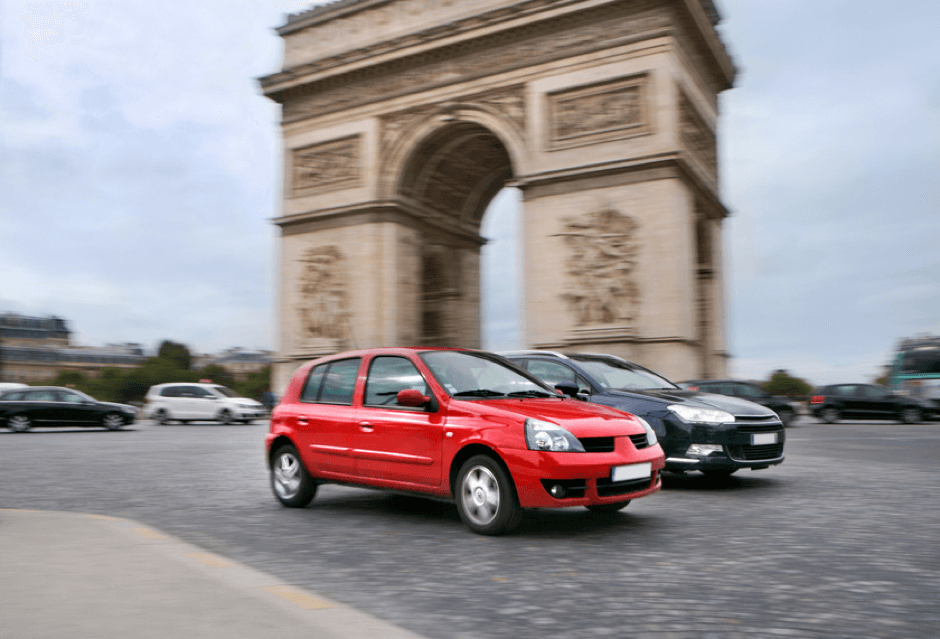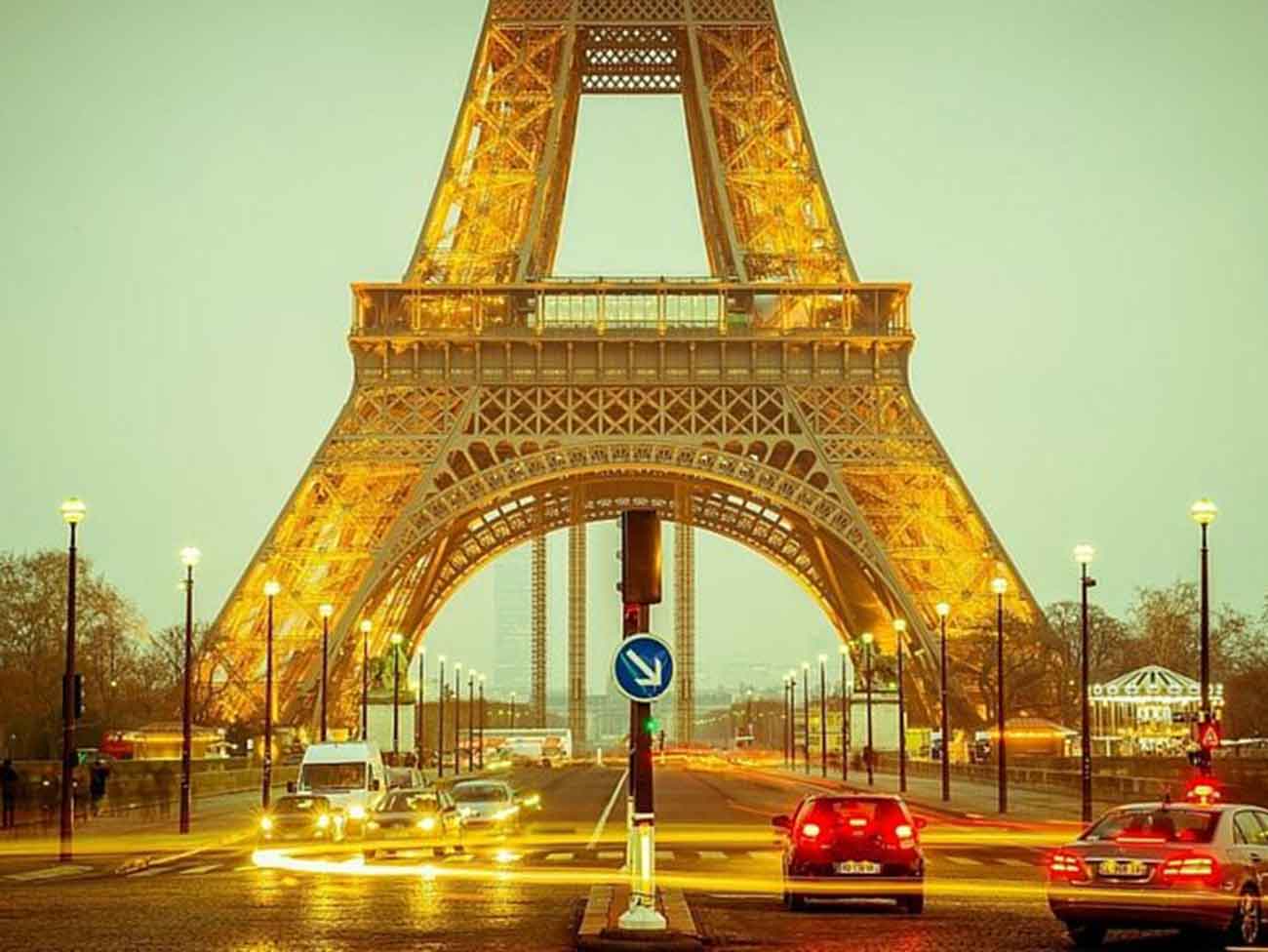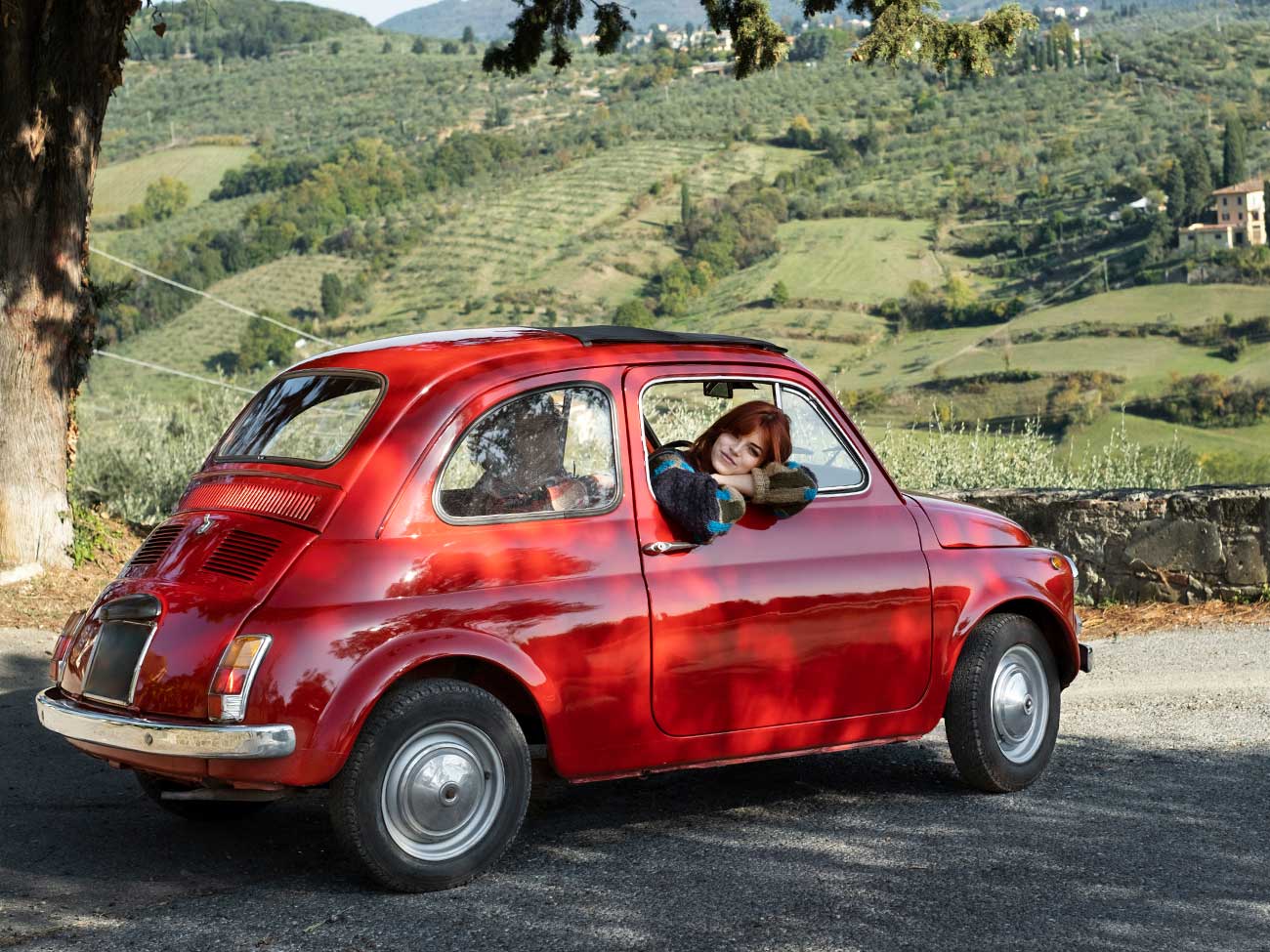
The Comprehensive Guide to Driving in France
With attractions and sights such as Disneyland Paris, the Eiffel Tower, the French Riviera, the Loire Valley and Provence, to mention but a few, France has much to offer the savvy tourist, especially those with their own wheels. The French are known for their somewhat bureaucratic driving laws, many updates to which were made in 2016, so if you're thinking about taking your car across Le Mange, it's important to do your research.
In this comprehensive guide, we take a close look at driving in France, helping you make your holiday one to remember for years to come.

Driving in France: the essentials
It's worth bearing in mind that if you break down on the motorway (autoroute), it'll be either the police or the official road assistance company that operates in that area that comes to your rescue - you cannot call your own - so it's vital you prepare and pack the correct items. The fines for non-compliance can be hefty. To drive in France both safely and to avoid the myriad of fines, ensure you take the following with you:
A full, valid driving licence - Drivers must be 18 years of age or older, even if you are qualified to drive in your country of residence. You don't necessarily need to have a French driving licence; as long as your licence was issued in the EU or EEA (or whatever Brexit eventually brings), you're good to go.
Passport - It is important to always have proof of identification on you in case you are ever pulled over, particularly if you aren't a French national.
Proof of ownership - This can be either a V5 log book or a V5C certificate and proves that you are the legal owner of the vehicle you drive.
Insurance documents - Once again, it's in your best interests to keep these in your car at all times. Make sure your insurance policy is comprehensive and covers you outside of the UK, as some revert to third party only when you leave the UK.
MOT - If your car is over three years old, you'll need to bring your MOT certificate with you.
Vehicle tax - You need to make sure that your car has been taxed in the UK, otherwise your insurance will be void.
GB Sticker - In France, you need to display a GB sign unless your car has number plates that have the GB euro-symbol.
Headlamp converters - It is compulsory for you to carry headlamp converters on your vehicle as car headlights tend to cause dazzle when driven on the opposite side of the road that they were designed for.
Warning triangle - If you ever break down on the motorway in France, you will need a red reflective triangle that you can place a short distance from your car, to warn other drivers. This is an important safety measure which is supported by the French government.
Hi visibility vest - In the event of a breakdown, especially on the motorway, the French authorities are keen to make sure you're seen. You should carry luminous jackets or vests for everyone in the car (not the boot, so you can put them on before stepping outside).
Spare bulbs - Despite the fact that it is unlikely you will ever be asked to produce a spare set of bulbs if stopped by the police, French law requires cars to carry them. You could be fined if you fail to do so.
Breathalysers - You must carry a breathalyser (and possibly a spare) when driving in France. There is no current legislation supporting fines for non-compliance, but it's still a requirement.
Rules you need to know
Whilst many of the road rules and regulations in France are similar to those in the UK, there are a few key differences you should be aware of. Without wishing to be over-dramatic, the French authorities have the power to collect on-the-spot fines of up to €375 for those that do not follow traffic regulations.

- You will need to drive on the 'other side' of the road. Driving on the right may feel slightly disorientating at first, but it's easy to get used to! This means that you will need to overtake on the left.
- At junctions, you must give priority to all vehicles coming from the right and you also need to give way to vehicles travelling uphill whilst you are going down.
- You can warn other motorists of your approach at night by flashing your lights.
- French laws regarding child seats are slightly different in that they are based on the weight of a child rather than on height. They should be in a child seat if they weigh under 15kg and/or they are aged under ten years.
- Use of mobile phones, even via Bluetooth hands-free kits, is strictly forbidden and could earn you a whopping fine.
- Exceeding any speed restriction in France by more than 40km/h can result in having your licence removed on the spot by the authorities. The RAC also has extensive information regarding national speed limits.
- On that note, driving with speed camera detectors, even those incorporated into sat nav systems, are illegal, so ensure they are disabled.
- To reiterate what we mentioned above, should you break down, remember you can't employ the assistance of your own breakdown cover. You will need to use one of the emergency telephones situated every 2km along motorways and main roads.
- France has strict rules on driving under the influence. The best way to avoid any kind of trouble is to abstain from drinking at all; anything over 0.05 percent could result in imprisonment (0.02 percent for inexperienced drivers).
Driving in Paris
When we're asked for our top tips for driving in Paris, we offer just one: don't do it! Paris at times can be so snarled up with traffic, it's gridlocked. It's far better to use the Metro or your own two feet.
If that's not enough to dissuade you, then the Parisian officials have turned some areas into pedestrianised zones, while others (around the Right Bank) will become vehicle-free for the summer. To reduce fumes, cars are prohibited from driving along the Champs-Elysees once a month, and any cars, lorries and buses which have been registered before 1997 are banned from the city outright.
More plans are afoot to reduce pollution, including more 'days without cars'. Meanwhile the authorities are investing a lot of money in making Paris 'bike-friendly', so cycling could be a pleasant alternative one day.
Helpful tips
Now that you're clued up on what you need and what you should know about driving in France, let's have a look at helpful tips to make the entire experience more enjoyable!
- Make sure your car is in good condition. It never hurts to service your vehicle before travelling abroad; by doing this you can avoid the unpleasant experience of breaking down in a foreign country and ensure that your car is safe for all the family.
- Tolls are common on French roads and scrabbling about for Euros can be a pain. To beat the queues and the headache, buy a Liber-t tag in advance. This little barcode sits in your windscreen and is scanned automatically, lifting the barrier for you. Around two weeks later, you'll receive an invoice for the toll fees and that amount will be debited from your bank account. Much easier!
- It is always best practice to use a sat nav or maps. Unless you're fluent in French, you may find asking for directions slightly difficult so it's best to have something you can fall back on. Make sure you have a rough idea of where to go before travelling anywhere in France and don't sweat it if you take a wrong turn, it happens to the best of us!
- A bit of rudimentary French also never goes amiss. In particular, motoring-related French can prove to be highly useful, such as French names for different kinds of fuel and road sign translations.
Ultimately, with the right paperwork, safety precautions and a little knowledge, driving in France can be a breeze. Bon vacance!